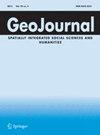津巴布韦哈拉雷的非正式部门对抗力量
IF 1.9
Q2 GEOGRAPHY
引用次数: 1
摘要
非洲城市政府对非正规部门的态度普遍很严厉。非正式商人被认为是讨厌的东西,不值得政府支持,受到严厉的规定和警察的骚扰。这篇论文将津巴布韦哈拉雷的这种反非正式部门的方法作为主权力量,而非正式贸易商的抵抗作为反力量(以福柯的名字命名)。我们采用可持续生计方法(SLA)。分析他们对主权权力的反应。我们对50名非正规街头商贩和20名关键线人的采访显示,这种对抗力量的形式是良好的商业惯例,建立在城乡联系的基础上,违反现行的规章制度。这些商人还通过移动、不展示所有货物、将货物放在一张纸上以便在受到威胁时迅速撤下、将货物存放在其他地方、以及行贿以获取警方活动信息等方式,积极避免警方突袭造成的损失。我们的发现反驳了非正规部门贸易商是政府暴行的无助受害者的观点。本文章由计算机程序翻译,如有差异,请以英文原文为准。
Informal sector counterpower in Harare, Zimbabwe
Abstract African city governments have generally been harsh on the informal sector. Informal traders are considered a nuisance and unworthy of government support and are subjected to severe regulations and police harassment. The paper frames this anti-informal-sector approach in Harare, Zimbabwe, as sovereign power and the informal traders’ resistance as counterpower (after Foucault). We use the sustainable livelihoods approach (SLA. to analyze their response to sovereign power. Our interviews with 50 informal street traders and 20 key informants revealed that this counterpower takes the form of good business practices, building on urban–rural linkages and disobeying the current bylaws. The traders also actively avoid damage from police raids by being mobile, not displaying all their goods, setting out goods on a sheet for quick removal when threatened, storing goods elsewhere, and paying bribes for information about police activity. Our findings contradict the view of the informal sector traders as helpless victims of government brutality.
求助全文
通过发布文献求助,成功后即可免费获取论文全文。
去求助
来源期刊

GEOJOURNAL
GEOGRAPHY-
CiteScore
4.90
自引率
7.40%
发文量
228
期刊介绍:
Aims & ScopeGeoJournal is an international journal devoted to all branches of spatially integrated social sciences and humanities. This long standing journal is committed to publishing cutting-edge, innovative, original and timely research from around the world and across the whole spectrum of social sciences and humanities that have an explicit geographical/spatial component, in particular in GeoJournal’s six major areas:- Economic and Development Geography- Social and Political Geography- Cultural and Historical Geography- Health and Medical Geography- Environmental Geography and Sustainable Development - Legal/Ethical Geography and Policy
In addition to research papers GeoJournal publishes reviews as well as shorter articles in the form of research notes, commentaries, and reports. Submissions should demonstrate original and substantive contributions to social science and humanities from a geographical perspective. Submissions on emerging new fields such as GeoEthics, Neogeography, Digital Humanities and other emerging topics are also welcome.
GeoJournal’s focus makes the journal essential reading for human geographers working in these areas, as well as for researchers from other disciplines, such as sociology, economics, political science, demography, environmental studies, urban planning, history, and cultural studies.
Last but not least, GeoJournal encourages feedbacks and discussions on articles published in the journal through letters to the editor.
GeoJournal is published bi-monthly in February, April, June, August, October and December.
 求助内容:
求助内容: 应助结果提醒方式:
应助结果提醒方式:


